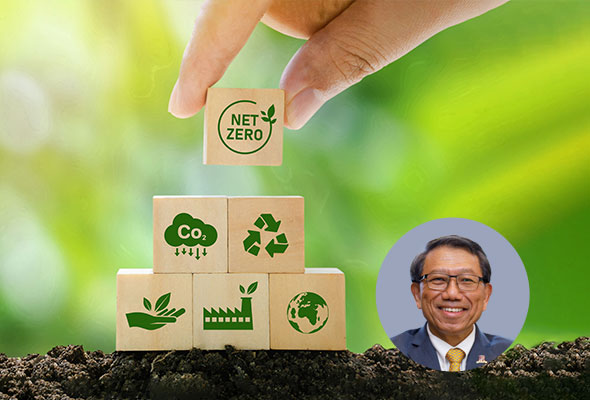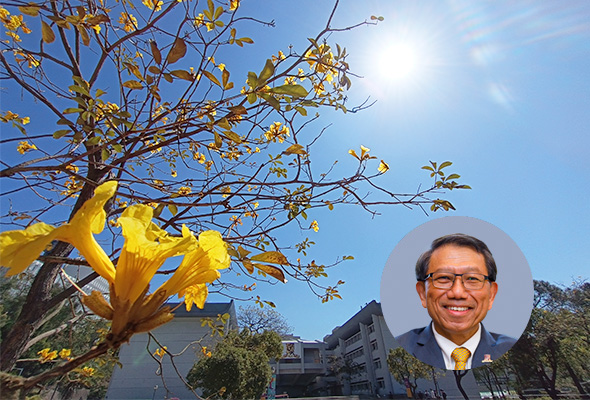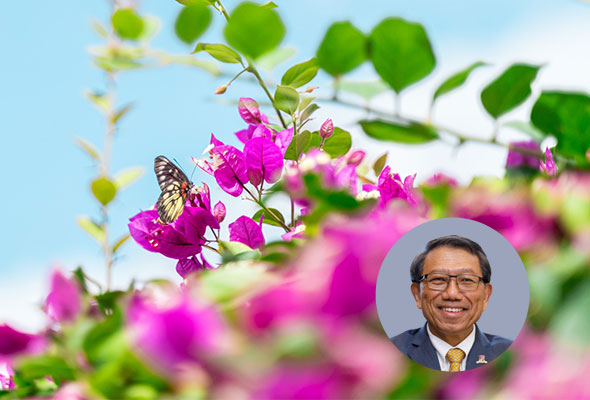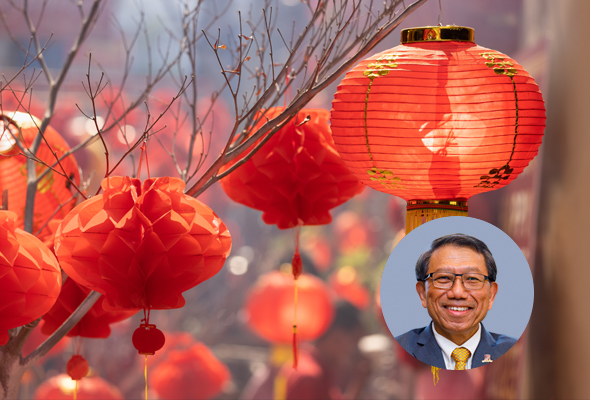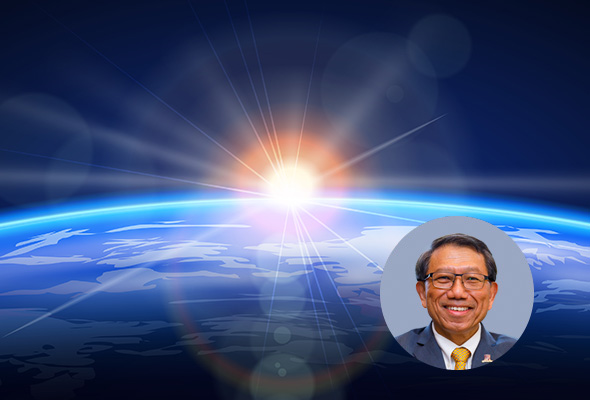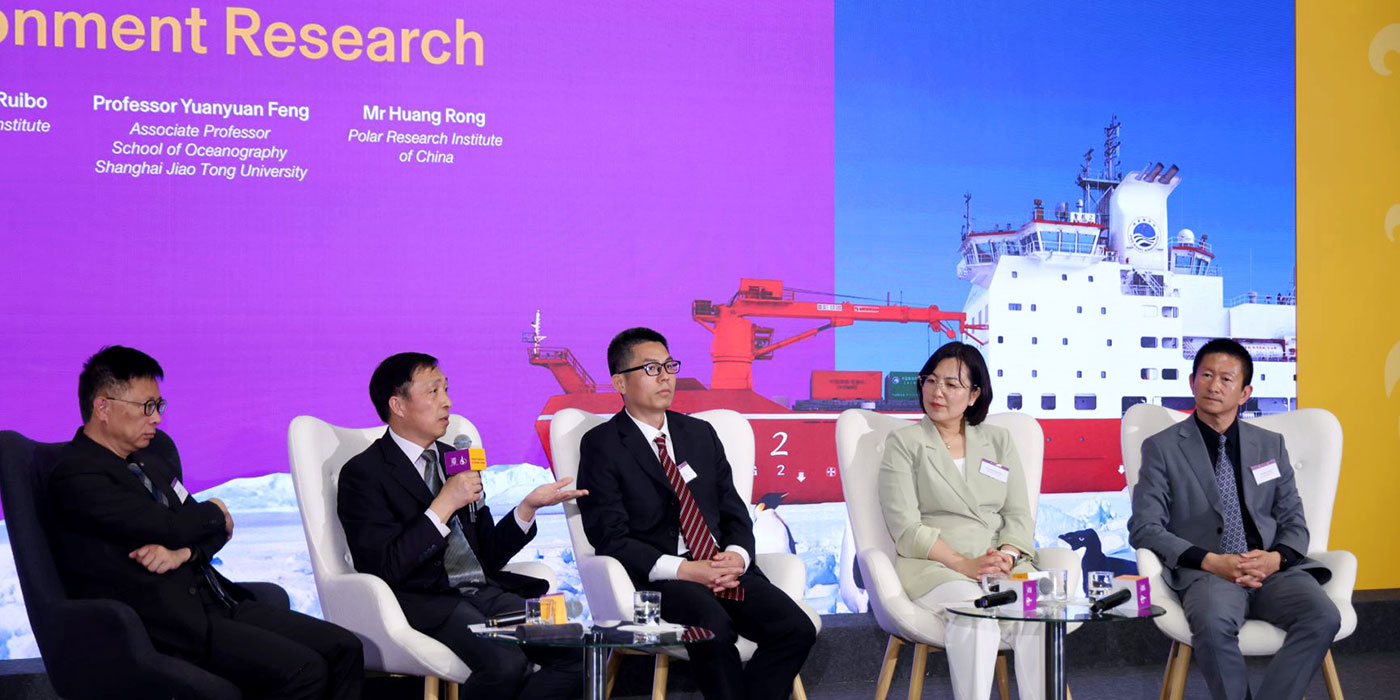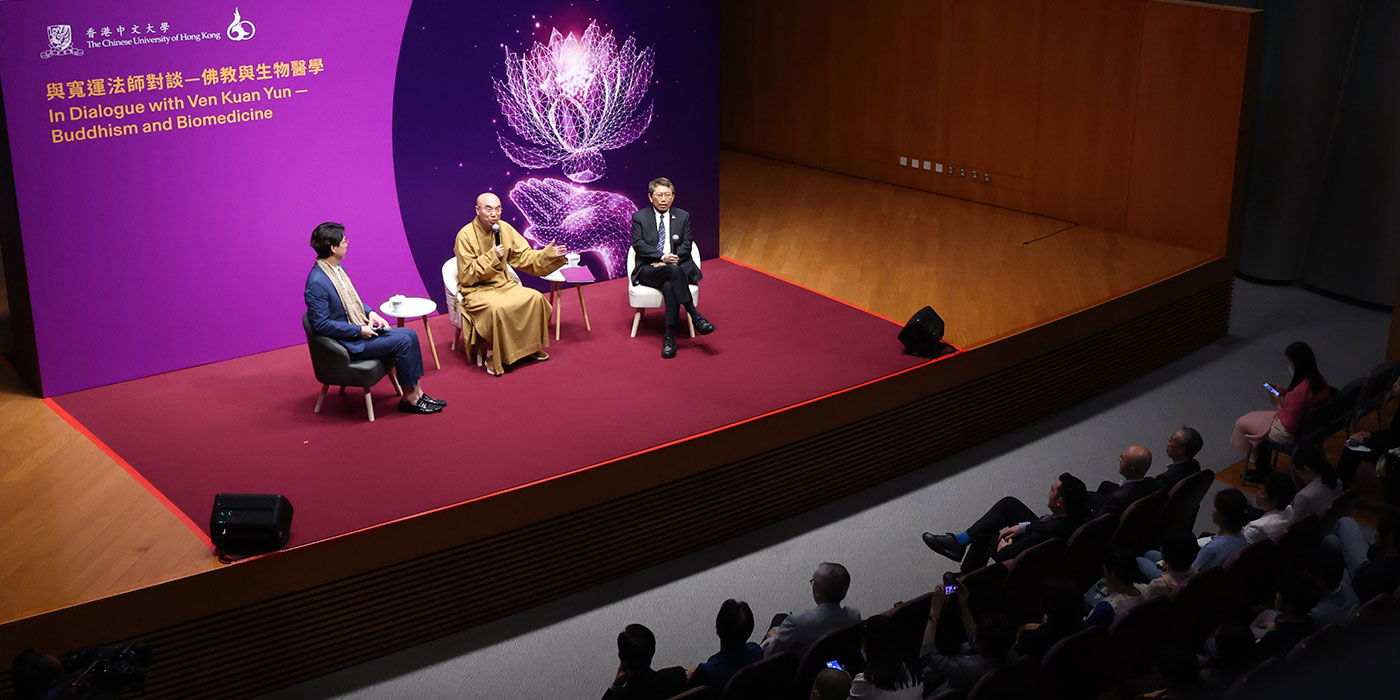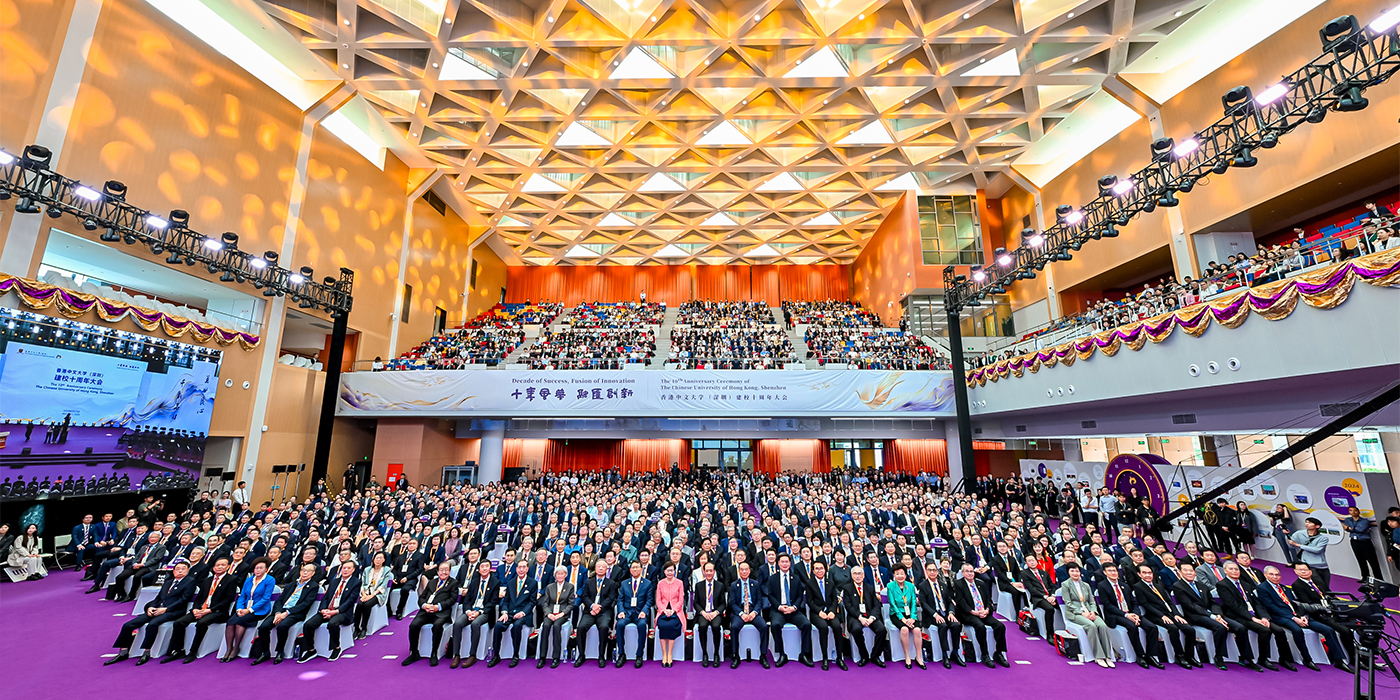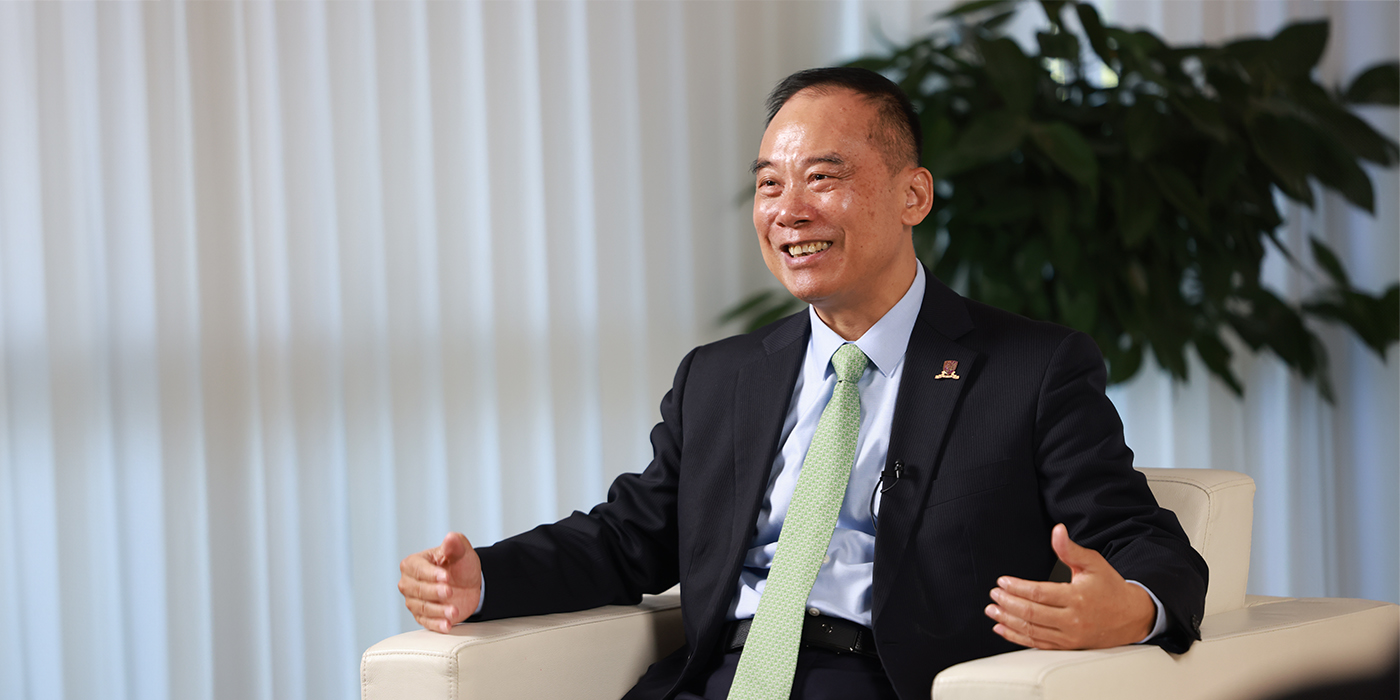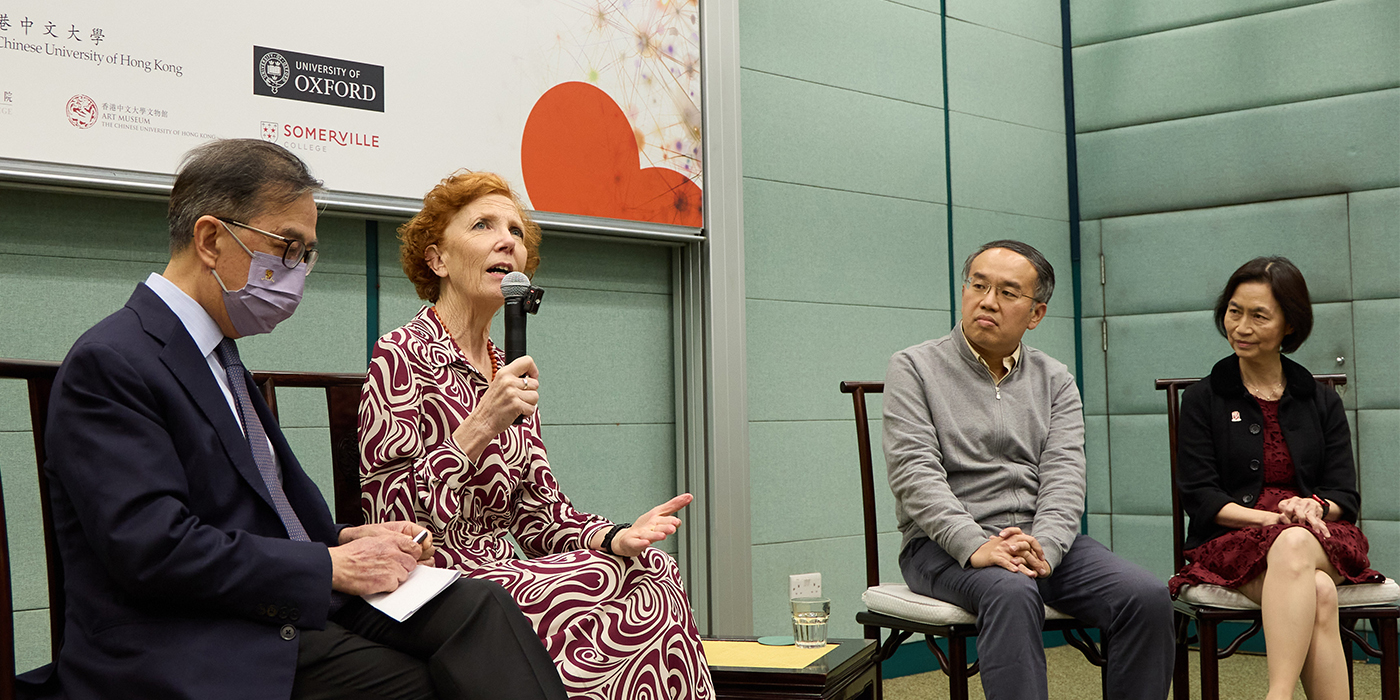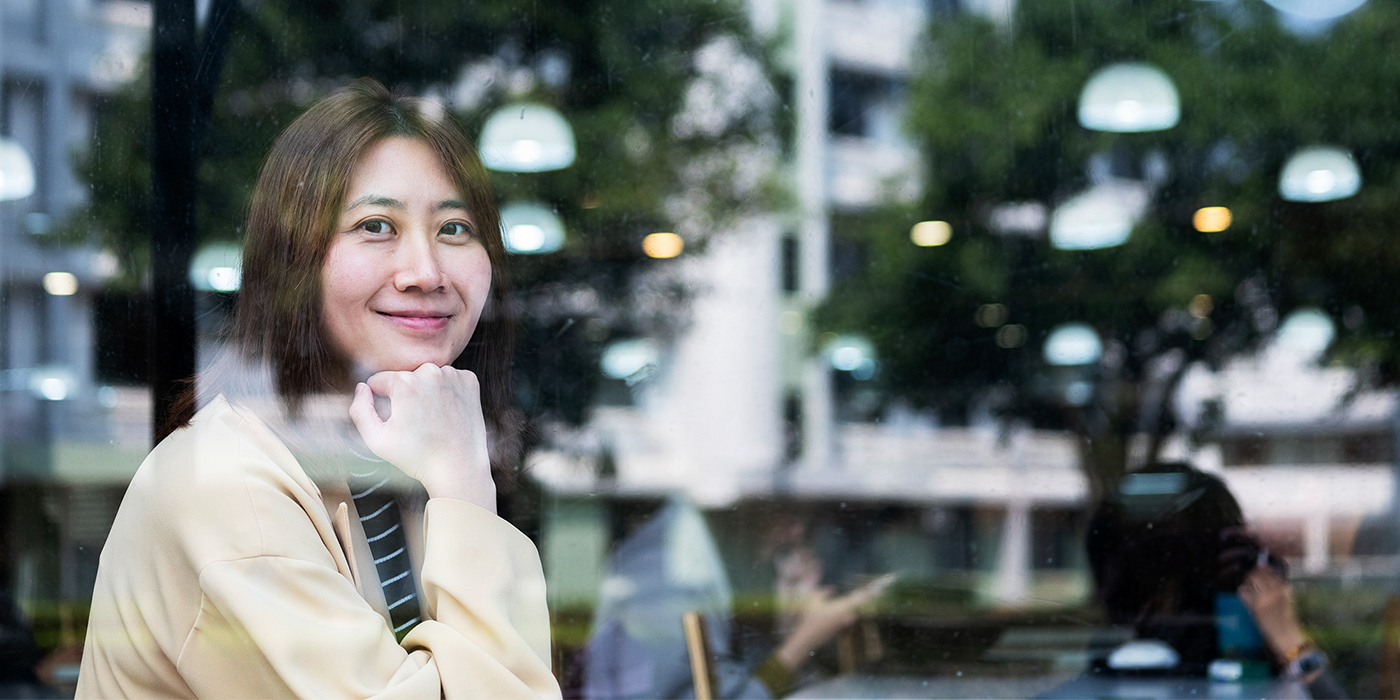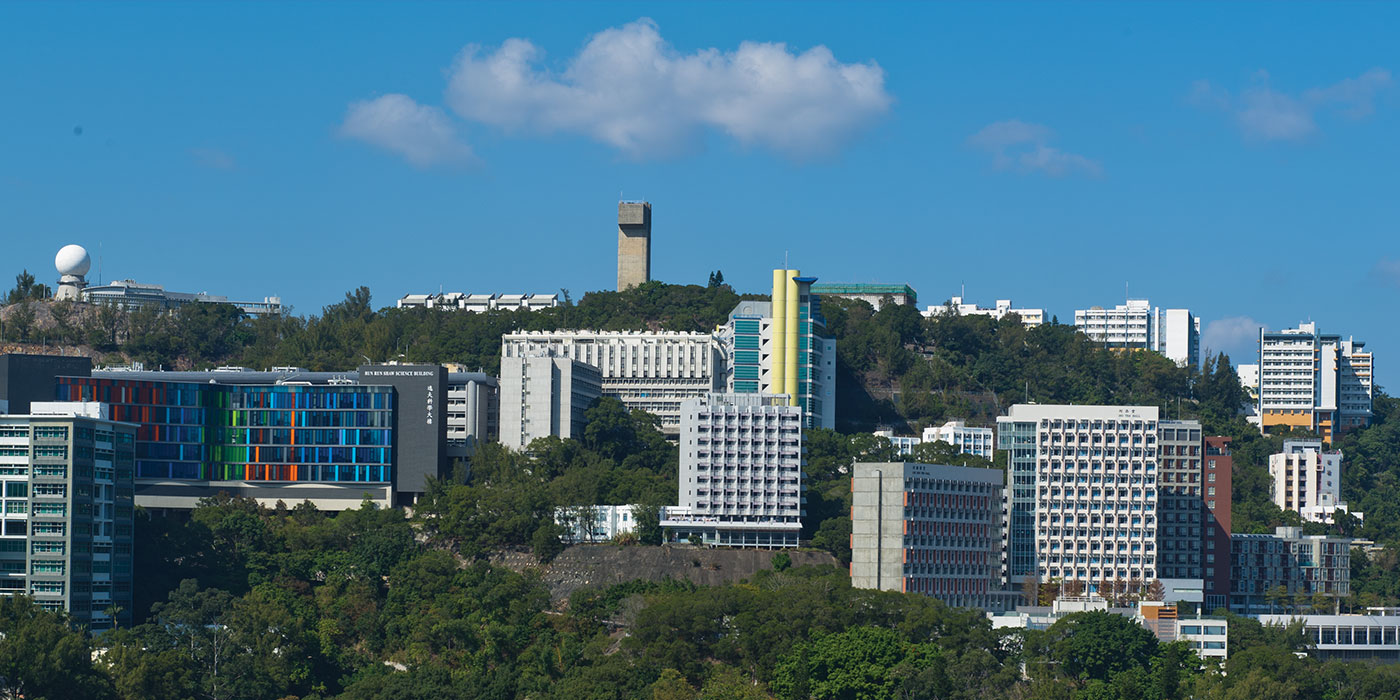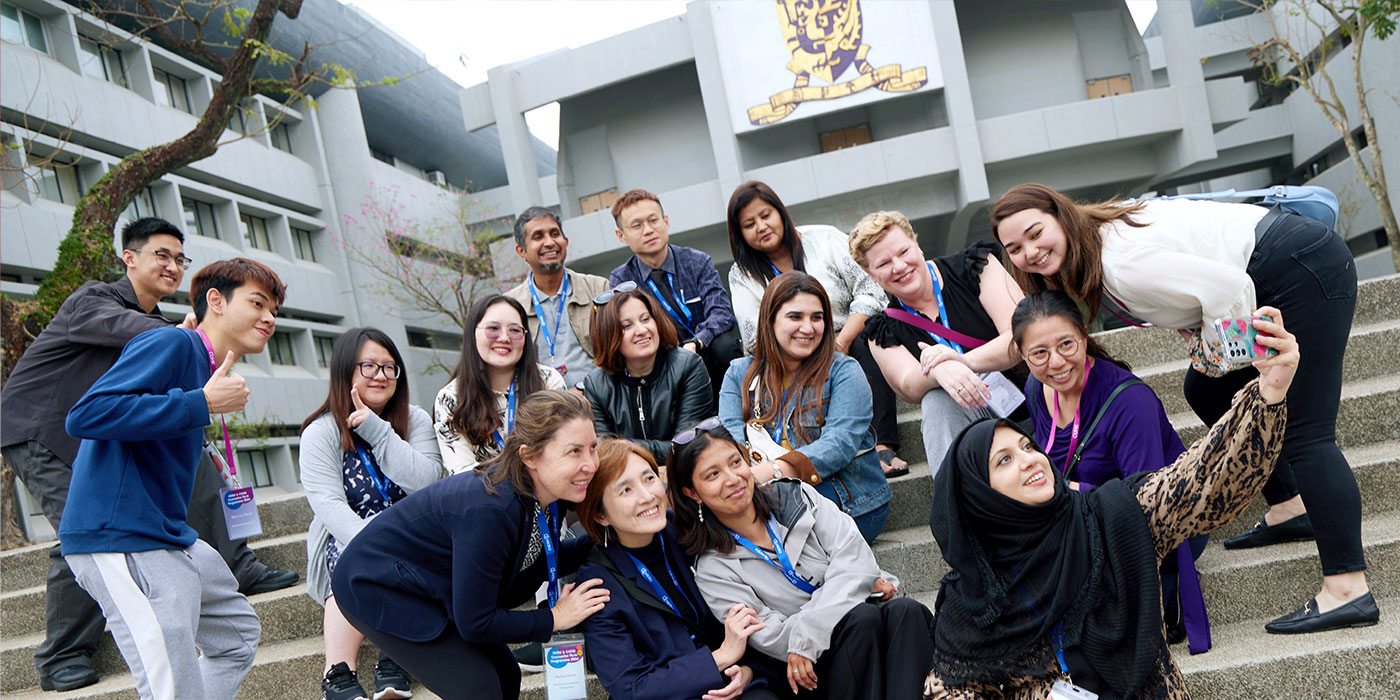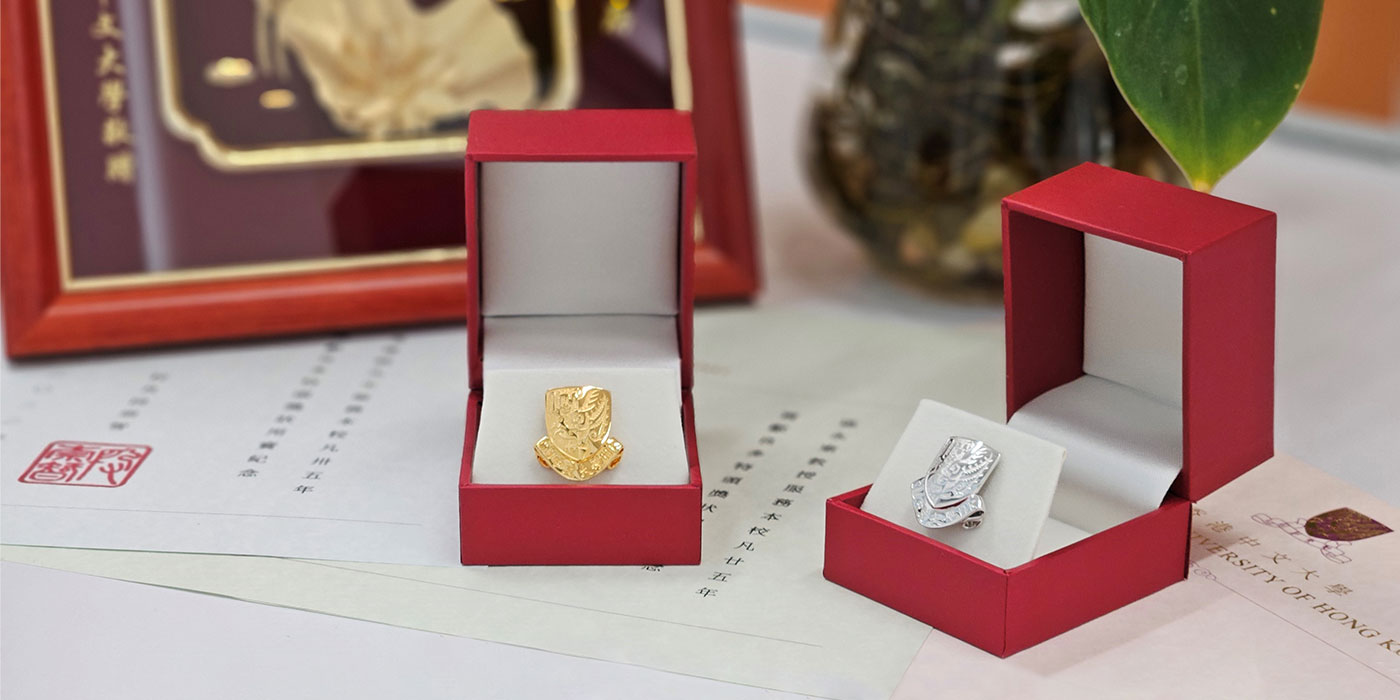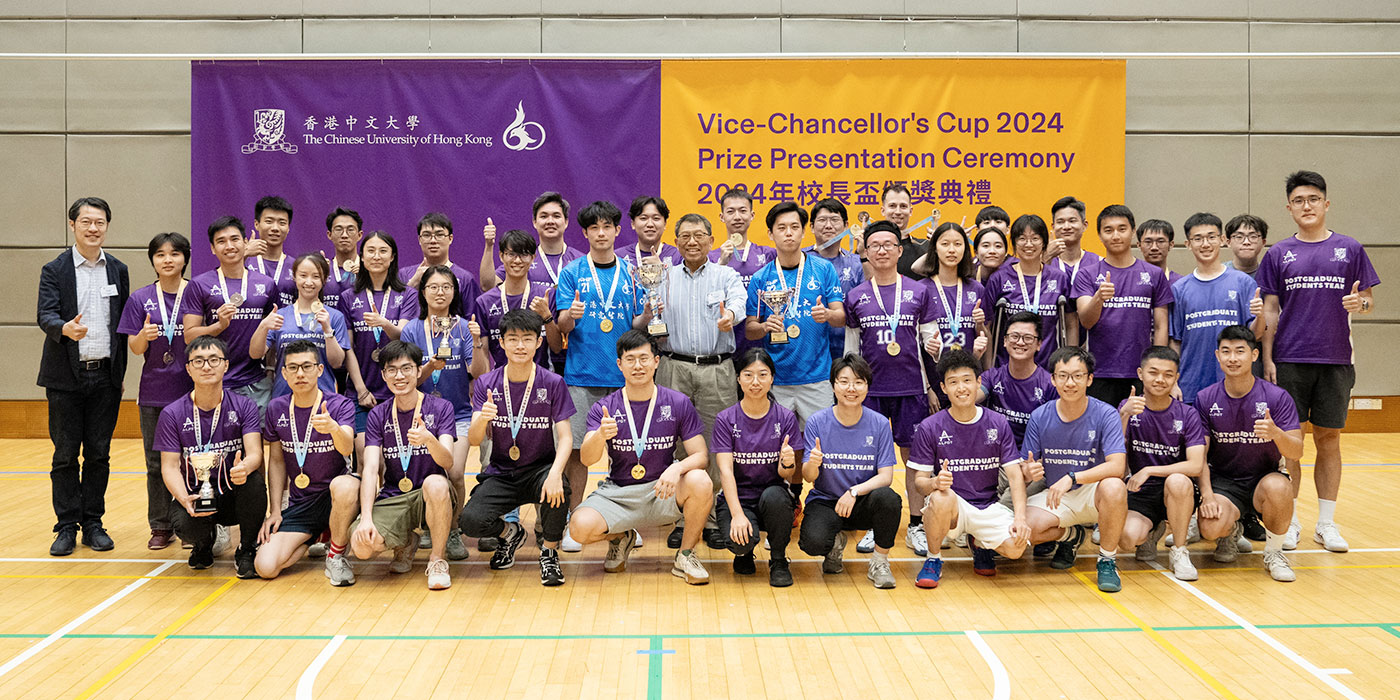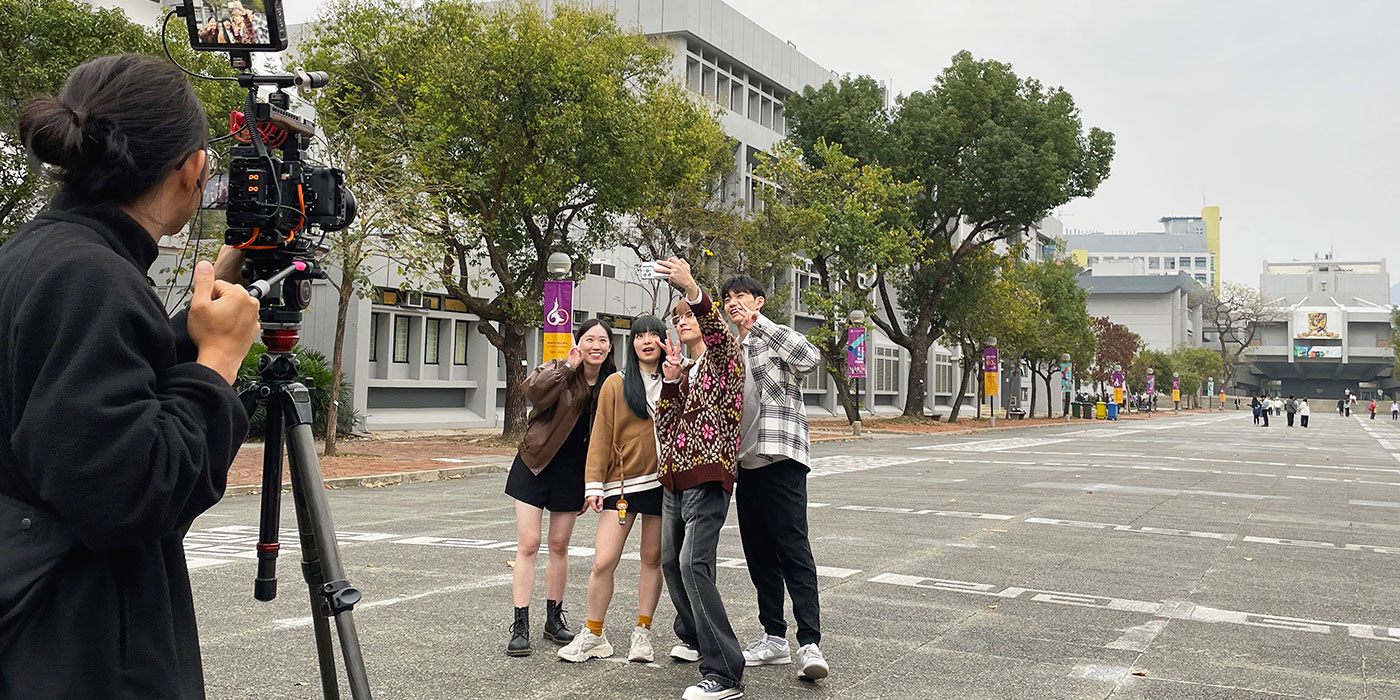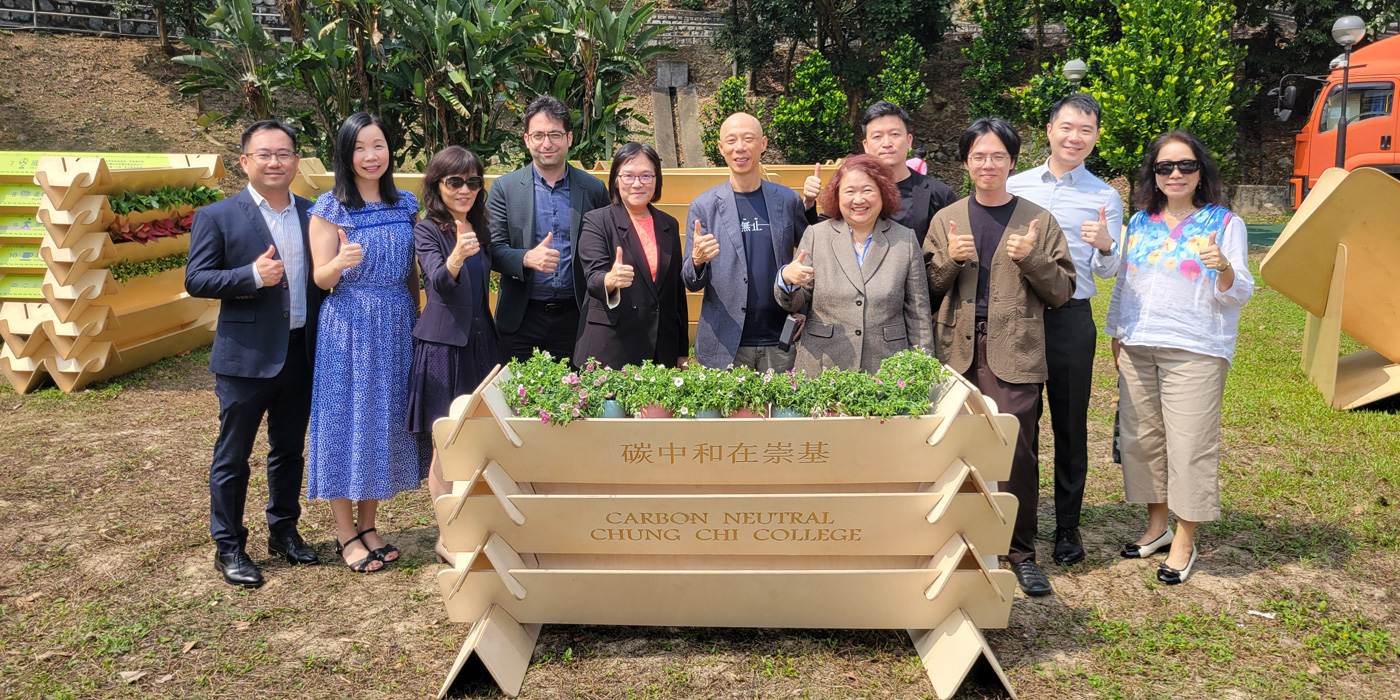Change is in the air
CUHK gains a ringside seat at COP28
Across two weeks in November, the prominent global climate gathering commonly known as COP28 unfolded in the Persian Gulf city of Dubai. Watching from the sidelines as observers were a couple of representatives from CUHK: Professor Amos Tai Pui-kuen, associate professor at CUHK’s Earth and Environmental Sciences Programme of the Faculty of Science, and Cecilia Lam, CUHK’s Chief Sustainability Officer, were among the delegates from more than 200 countries and regions converging on the 2023 United Nations Climate Change Conference, hoping to create a framework for solutions to tackle the pressing issue of climate change.
As a member of the board of governors of Friends of the Earth (HK), Professor Tai could not help but be intrigued by the many side events happening around him: discussions on agriculture, food systems, and dietary habits, for example, were all topics dear to his heart with their intricate connection to greenhouse gas emissions. As he tells CUHK in Focus: “Those sessions talk about more practical solutions, like how government agencies, businesses, industries, NGOs and academics might all come together to mitigate and adapt to climate change.”
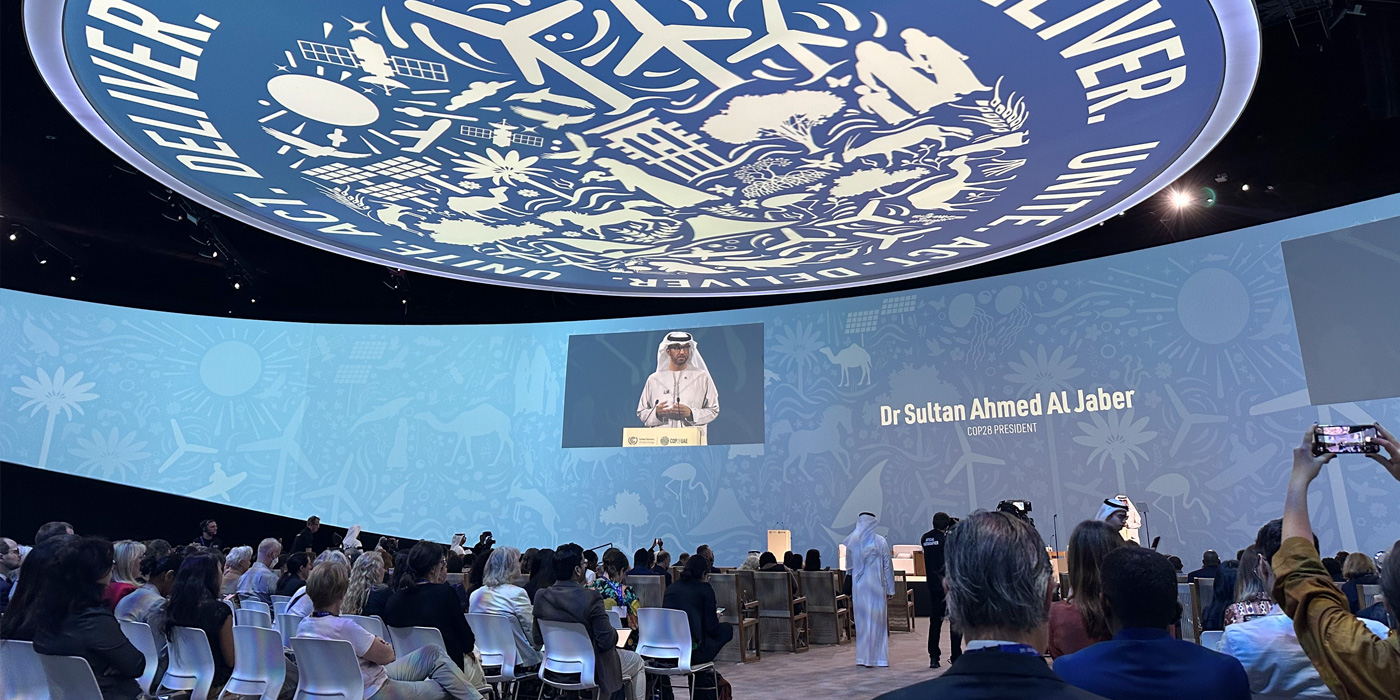
The scientist
During his time in Dubai, Professor Tai says he “wore different hats”: he was there not only as an scientist, but also as an advocate and educator. The close relationships between agriculture, food systems and climate change are a specialisation area of the professor’s; as such, in between sessions of watching the main negotiations unfold around him, he also sat in on one panel discussion after another, tirelessly taking in the latest developments. He says of those meetings: “The approach they took was two-pronged: not only did they talk about finding nature-based, socially inclusive solutions through the changing of agricultural practices, dietary habits and ecosystem restoration methods, they also discussed ways of making food systems more resilient, so that developing countries might adapt better to extreme weather events that are happening increasingly frequently.”
It was also at COP28 that close to 160 countries signed the Emirates Declaration on Sustainable Agriculture, Resilient Food Systems, and Climate Action. Signatories agreed to make agriculture and food systems the centrepoint of their efforts to combat climate change, a development that Professor Tai found heartening. Nevertheless, he continues: “The final document only mentions ‘food’ six times, and neither does it set concrete targets for limiting greenhouse gases produced by the global food systems — obviously there are still obstacles to overcome when it comes to agriculture and tackling its effect on climate change. But agriculture accounts for over 30% of the world’s greenhouse gas emissions, and if we don’t try and actively limit that, it’ll be difficult to keep to the limits we set in the Paris Agreement earlier,” referring to a 2015 agreement wherein countries would collectively limit global temperature increases to 1.5°C above pre-industrial levels. Although the official discussion of such topics is itself a step forward, the professor hopes that future COPs will set more specific targets for agricultural emissions.
The advocate
Professor Tai himself had the chance to dwell at length on his informed perspectives about sustainable development, speaking on invitation at a side forum in the China Pavilion to share about Hong Kong’s contribution to a green future. The professor also delivered an independent summary of China’s climate actions, highlighting how the country had been progressing towards carbon neutrality before 2060 and honouring the Paris Agreement.
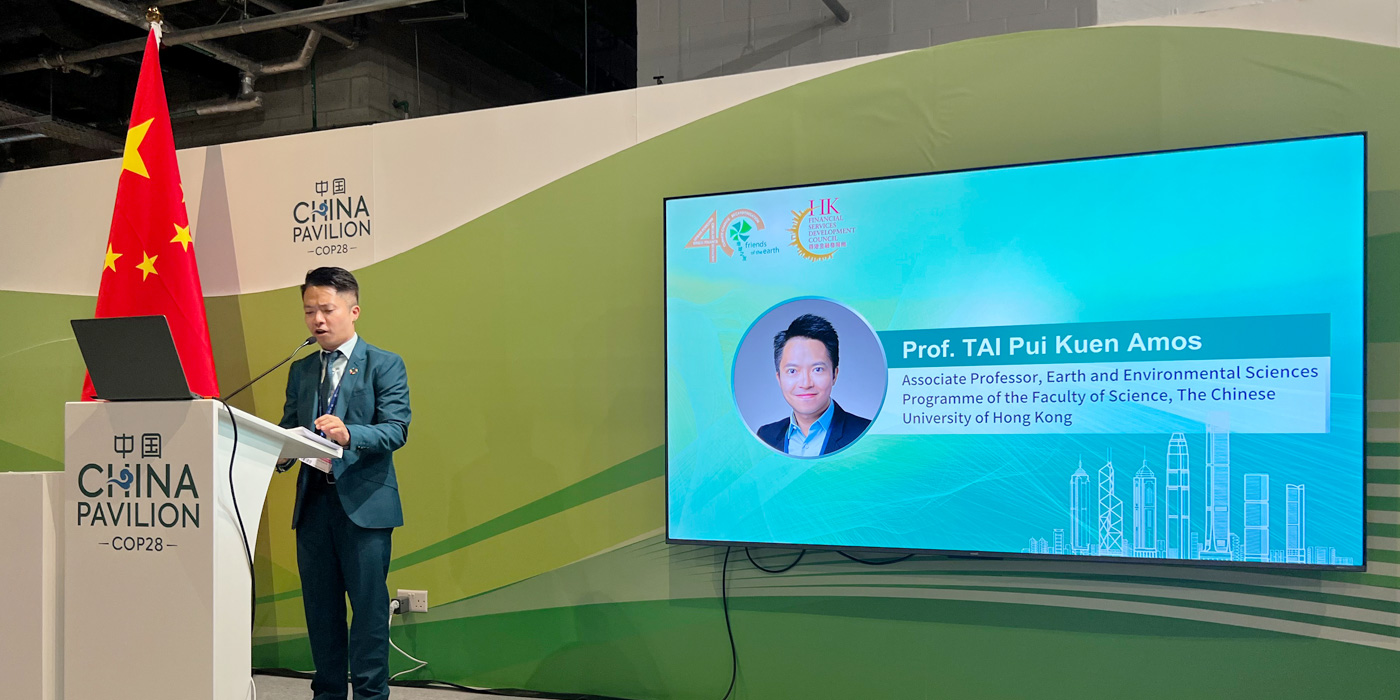
During his speech, the professor also emphasised this city’s role as an important hub for climate finance, facilitating projects that would help the world adapt to climate change and achieve carbon neutrality. Explaining these developments to CUHK in Focus, he says: “Sustainable finance has rapidly expanded in Hong Kong — in green bonds alone, there are already 20-odd billion US dollars in funds, and this in turn creates a great platform for green investment for companies and projects in the Asia-Pacific region. These funds can be used to build more efficient and low-carbon energy and food systems, or be put into projects that help developing countries adapt to climate change.”
Professor Tai is aware of the cloak of mystery surrounding COP conferences: the outside world usually sees the grand proclamations issued by countries, and not much else. With a frustrating lack of visible progress, sceptics see such events as mere empty rhetoric, unable to bring about real change. However, this is a sentiment the professor does not share: “If you think about this conference, it’s helping to set a narrative for the entire world on climate change,” he says, becoming more animated as his enthusiasm shows through. “If you have a very negative narrative, then the people of the world will be very discouraged; however, if your narrative is positive — and here I mean affirming all the achievements that have been made, while also taking note of potential room for improvement — then everybody would also be more motivated to work on solutions together.”
Professor Tai considers the Dubai conference to be a major step forward in the climate fight. After days of intense discussion, the final “UAE consensus” coming out of COP28 urged participating countries to engage in “transitioning away from fossil fuels in energy systems […] so as to achieve net zero by 2050”. This consensus, says the professor, is “the very first time” that fossil fuels have been identified as the prime target for climate action, and the implications are huge. “Scientists have always known that transitioning away from fossil fuels to more renewable sources of energy is the only way you can meet the goals set by the Paris Agreement, and this is the year they’ve finally acknowledged it — so every person on the planet now knows: a future without fossil fuels is the goal.”
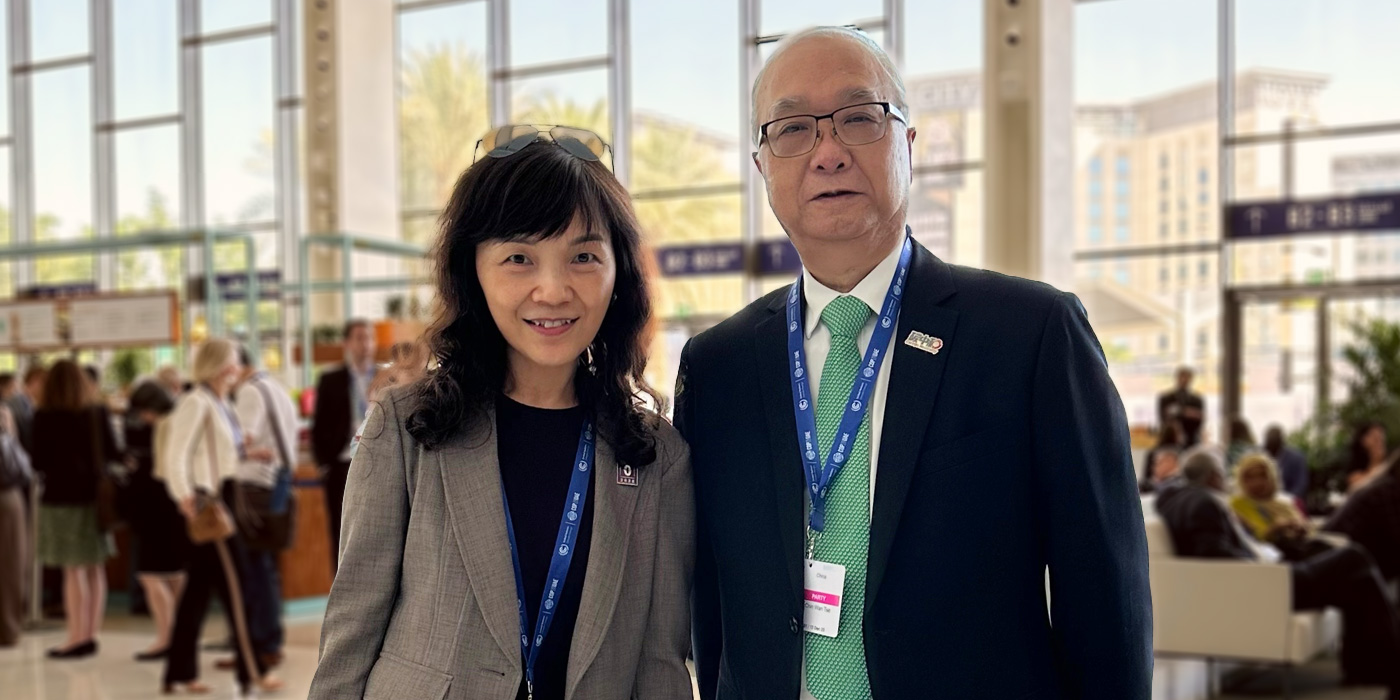
The educator
CUHK’s constant commitment to the climate, evidenced in its research and its dedication to achieving carbon neutrality by 2038, has been further bolstered by its admittance to events such as COP28. As CUHK’s Chief Sustainability Officer, Cecilia is buoyant about the outcome. She writes to us that “as thought leaders and influencers in climate change”, these events give universities a chance “to connect and exchange new knowledge”, and to “challenge themselves to contribute to policy change and stay relevant in the pursuit of the global goal of climate neutrality”.
As for the professor, his biggest takeaway from the conference is that people need a fundamental shift in the way climate change is taught or discussed. It can be tempting, he says, to impress the urgency of the situation on the current generation, “but it might have the opposite effect — students nowadays, they might think, ‘Well, it’s not my fault and we’re all doomed anyway, why do I have to care?’ What we need instead are more positive examples: there are so many organisations, so many farmers, so many government agencies doing so much work on this problem, coming up with proven and innovative solutions for climate change.”
The Dubai experience has reaffirmed his belief that conferences such as COP28 are important in setting down a narrative. “If we can show more of these examples, then people will understand that we’re not necessarily on the road to death and destruction, that there’s still time to turn things around and that they can all play a part.” Professor Tai leans back in his chair. “That’s what education is about, you see — giving hope to students, and the public at large.”
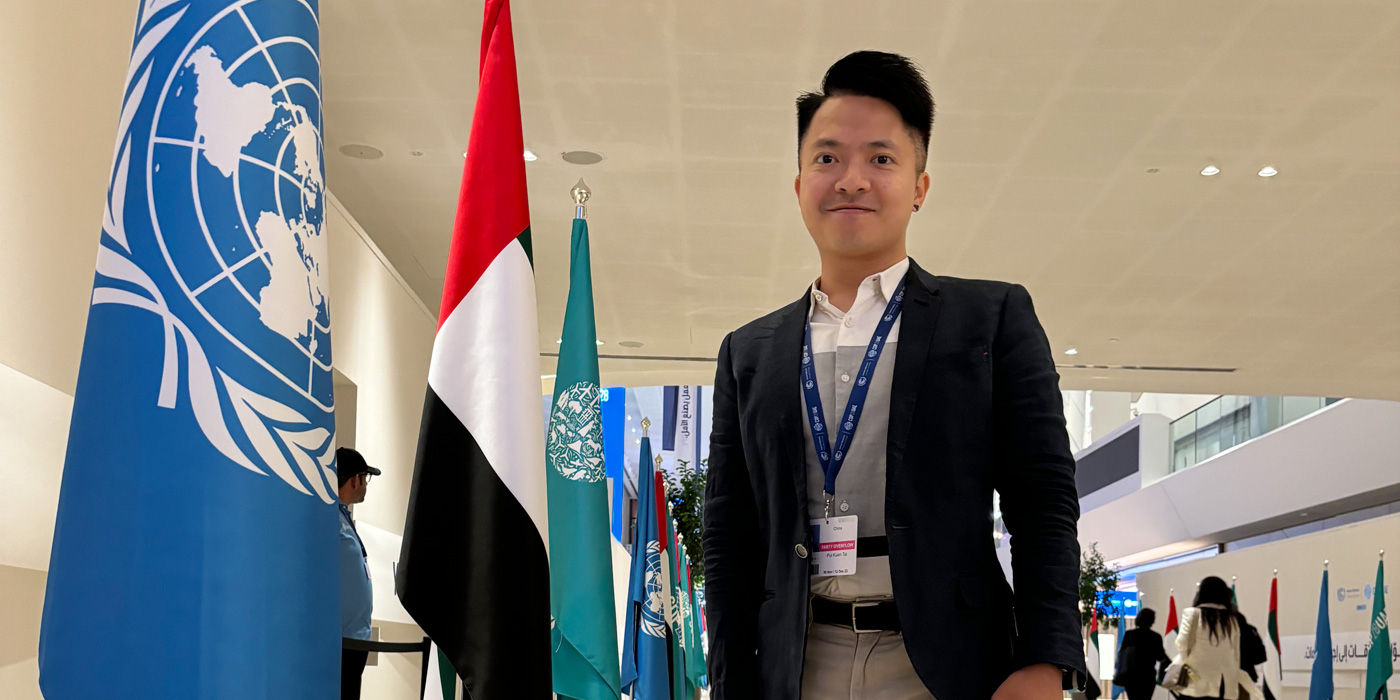
By Chamois Chui
Photos courtesy of Professor Amos Tai and Mrs Cecilia Lam


